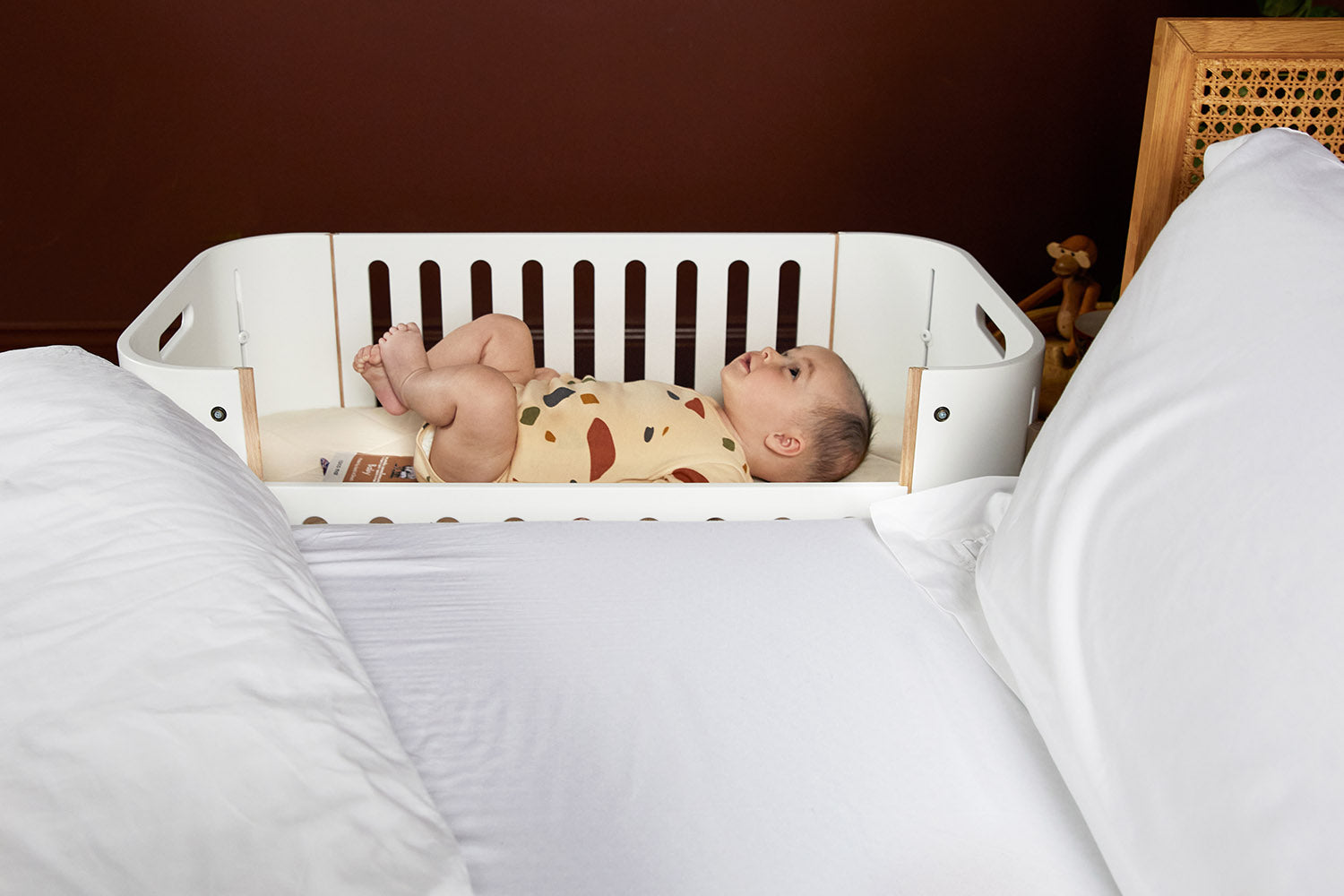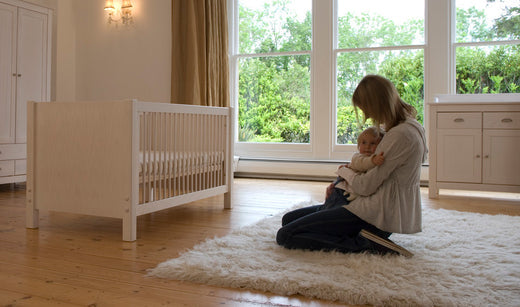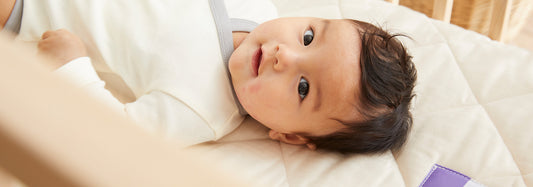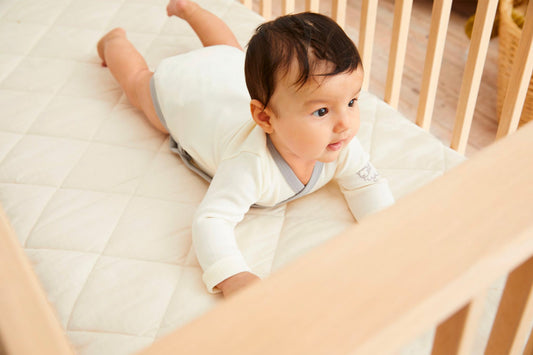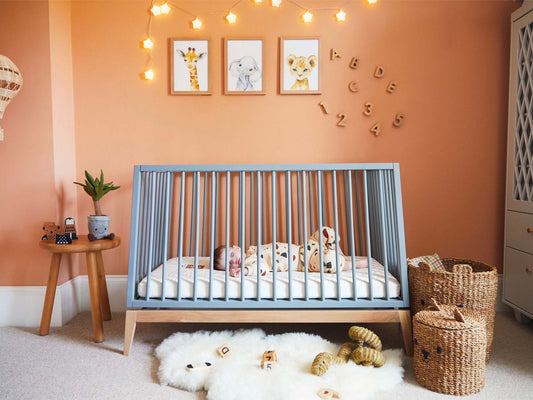What is co-sleeping?
Co-sleeping (also known as bed sharing) is when parents choose to share their bed or other sleep space with their babies, rather than using a separate cot or Moses basket.
Research has shown that there are instances where sharing a sleep surface with a baby carries an increased chance of Sudden Infant Death Syndrome (SIDS). However, co-sleeping is very much a personal choice, and The Lullaby Trust's guidance demonstrates ways to bedshare as safely as possible.
What is the safest way for a baby to sleep?
The Lullaby Trust states that the safest place for a baby to sleep is in their own clear, flat, separate sleep space, such as a cot or Moses basket with a firm mattress. This reduces the risk of SIDS.
Our Coco Mat is a wonderfully natural baby mattress which provides a firm, flat sleep space for your little one, available in cot & cotbed size as well as crib & Moses basket size.
Is co-sleeping safe?
Research has shown that there are instances where sharing a sleep surface with a baby carries an increased chance of Sudden Infant Death Syndrome (SIDS).
However, many parents will intentionally or accidentally co-sleep with their newborn at some point. One UK study found that 70% of first-time mothers co-slept with their infant at least occasionally, although none of them anticipated they would.
If you choose to co-sleep with your infant, it is recommended that you adhere to the below advice given by The Lullaby Trust to do so safely.
How to co-sleep more safely
If you are going to co-sleep with your newborn, you need to know how to do it safely. You should never co-sleep on a sofa, waterbed or in a chair, and never put the baby under your duvet. You should have light bed covers or the baby should have separate bedding. To avoid loose bedding entirely, a sleeping bag would be advisable. You can choose different togs for different seasons to help keep your baby at the right temperature.
Make sure to keep pillows and adult bedding away from the baby as this could cause them to overheat. A high proportion of infants who die as a result of SIDS are found with their head covered by loose bedding.
Do not bring other children or pets into the bed with you if you are co-sleeping. The bed should be arranged so there is no risk of the baby falling out, either pushed against a wall, or with the use of a guardrail. If you’re using a co-sleeping crib, make sure the mattress is firm, in good condition and not sagging in the middle.
If you do co-sleep, the safest sleeping position for your baby is lying on their back, as the chance of SIDS is higher for babies who sometimes sleep on their side or front.
When not to co-sleep
There are some situations when you should never co-sleep as it may increase the risk of SIDS. If any of the following points apply to you or your partner, you should never sleep together with your infant.
- Either you or your partner smokes (even if you do not smoke in the bedroom)
- Either you or your partner has drunk any alcohol or taken drugs (including any medication that may make you drowsy)
- Your baby was born premature (born before 37 weeks)
- Your baby was born a low weight (less than 2.5 kg or 5 ½ lbs)
There is also an increased risk with premature babies and those under 3 months, those of low birth weight, or if they have a fever. Never sleep on a sofa or armchair with your baby, as this can increase the risk of SIDS by 50 times.
Regardless of where your baby sleeps, you should always follow The Lullaby Trust’s Safer Sleep Advice and never leave them unattended in an adult bed.
Our Lullaby Trust Partnership
Naturalmat Baby are proud to be an official supporting partner of The Lullaby Trust, the UK’s leading safer sleep charity. Together we are dedicated to promoting safer sleep for all babies and are so pleased we are able to do so through our collaboration.
